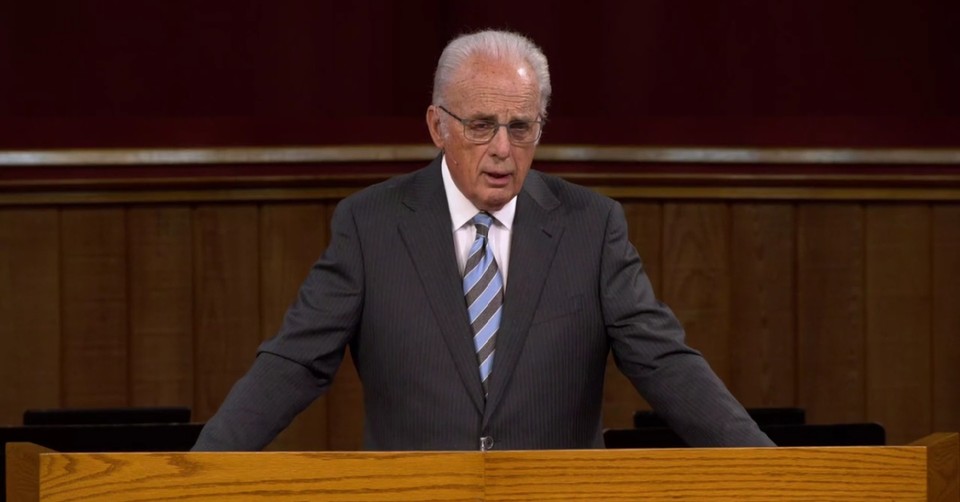Pastor John MacArthur: It's 'Too Late' for America, We're under Judgment

Pastor John MacArthur of Grace Community Church in Sun Valley, California, recently preached a sobering message suggesting that it may be too late for America to be saved because the nation is already under God's judgment.
The popular preacher and author delivered the sermon, "Too Late for Grace: When a Nation Rejects God," to his congregation on Palm Sunday. MacArthur's primary text was from the Parable of the Vineyard Owner (Mark 12:1-12), where a vineyard owner allowed tenants to oversee his vineyard when he went to another country. The vineyard owner sent slaves to the tents to collect the vineyard's fruit throughout their stay, but the tenants would beat them or kill them.
The vineyard owner even sent his son, saying, "They will respect my son." The tenants, however, would kill the owner's son as well. In response to their heinous actions, the vineyard owner "will come to destroy the tenants and give the vineyard to others." (v9)
The text continues: "Have you not read this Scripture: The stone that the builders rejected has become the cornerstone; this was the Lord's doing, and it is marvelous in our eyes?" (v10-11)
In his message, MacArthur explained that the parable was about judgment, saying that "with this parable," Jesus "pledges the destruction of Jerusalem and the nation."
"Vengeance will come, and it must come, and it did," MacArthur said, referring to the destruction of Jerusalem by the Roman Empire in 70 AD.
"The temple was never rebuilt, the priesthood was never recovered," he continued. "No sacrifices, no ceremonies, no Sadducees, no Pharisees, no priests, no chief priests to this day. The whole system ended."
MacArthur also referred to other biblical figures, such as the prophet Isaiah and the apostle Paul who delivered messages of judgment and that it was "too late" for some to be saved, respectively.
Paraphrasing God's call to Isaiah in Isaiah Chapter 6, MacArthur said, "Go tell them it's too late. You wouldn't listen, you wouldn't see, you wouldn't believe, and now you can't."
"Tell them it is too late. Judgment is already in motion," he added.
MacArthur went on to explain how it was "too late" for the lessons from the parable of the vineyard owner to apply to the church today.
"It can be for a generation of people too late," he noted. "Too late for eighth century [BC] Israel, too late for first century [AD] Israel, but it can be too late for every nation."
Citing Romans 1 in the New Testament, MacArthur further elaborated what it looks like for a nation that's already under God's judgment, including America.
"When you see a nation deep in sexual sin, pervasively affirming of homosexuality, and the insanity of a reprobate mind, where they make laws to criminalize righteousness and to legalize gross evil, you know that nation's under judgment," he asserted.
"What's our message to this nation?" MacArthur asked. "You're under judgment; it's too late. Judgment has been unleashed. You can hear but not understand. You can see but not perceive."
While the nation may be under judgment, "it's not too late for the elect," that is God's people, he added.
"But God has His people. So we warn because we don't know who those people are, and we also offer the grace of the Gospel. That's our calling," MacArthur said.
Earlier this month, MacArthur argued that Christians supporting religious freedom are promoting "idolatry" by linking up with non-Christian groups.
"Why would I fight for the devil to have as many false religions as possible and all of them to be available to everyone?" he asked.
He added that even with religious freedom, Christians who hold fast to the Gospel will always be met with the "hostility of sinners."
Related:
John MacArthur Urges Christians Not to Support Religious Freedom: 'I Won't Fight for Idolatry'
Photo courtesy: ©Grace Community Church

Originally published March 31, 2021.







